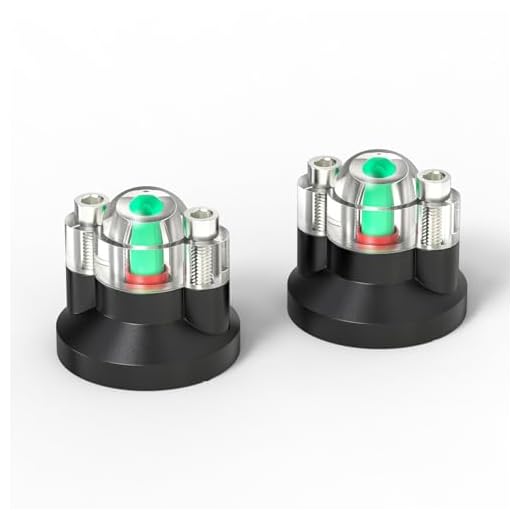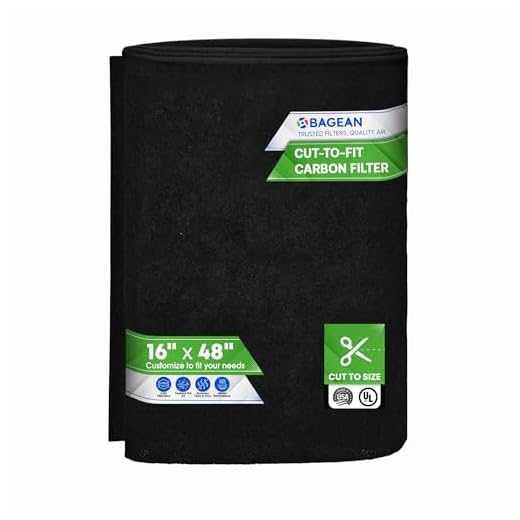




Filter Lifespan and Replacement
The lifespan of an activated carbon filter varies depending on several factors, including the type of filter, frequency of use, and the quality of air or water being filtered. Typically, a high-quality filter can last anywhere from six months to two years. It is essential to monitor the performance of your filter, as diminished effectiveness can indicate the need for a replacement. Regularly checking for signs of reduced flow or noticeable odors can be beneficial in determining when the filter is no longer effective.
Replacing the filter is crucial to ensure optimal performance and maintain air or water quality. Some filters come with a built-in indicator that signals when replacement is necessary. Others may require simply following a recommended schedule based on usage. Always consult the manufacturer’s instructions for specific guidance on replacement timelines and maintenance to avoid compromising your filtration system’s efficiency.
How Often Should You Change Your Filter?
The frequency of filter changes can significantly affect the efficiency of an activated carbon filter. Factors such as water quality, level of contaminants, and usage patterns play a crucial role in determining how often the filter should be replaced. In general, it’s advisable to change the filter every six months, though some may need to be replaced sooner if they are noticeably clogged or if the water odor or taste becomes unpleasant.
Regular maintenance checks can help you gauge the condition of the filter more accurately. Observing changes in water clarity or taste can provide indicators of when a replacement is necessary. Following the manufacturer’s guidelines is essential, as different filters may have varying lifespans based on their design and intended use.
Installation Requirements
When considering installation for an activated carbon filter, it’s essential to evaluate the specific requirements of the model you choose. Some filters are designed for simple DIY installation, providing clear instructions and the necessary hardware included in the package. Others may demand more complicated setups involving plumbing or electrical connections, which could require professional assistance.
Proper installation is crucial for ensuring optimal performance and longevity of the filter. Homeowners should assess their own DIY skills honestly, as improper installation may lead to leaks or decreased efficiency. Taking the time to understand the installation process can save time and money in the long run, contributing to a safer and healthier home environment.
DIY vs. Professional Installation
Installing an activated carbon filter can be an achievable DIY project for many homeowners. Clear instructions usually accompany most systems, simplifying the process. Familiarity with basic plumbing and household tools can ease the installation. Assessing your own skill level and comfort with home improvement tasks is essential before deciding to tackle the project yourself.
Alternatively, opting for professional installation may be the best route for those unsure about the process. Professionals bring expertise, ensuring proper installation and efficiency. This can be particularly advantageous with complex systems requiring additional components. While it may come with a higher upfront cost, the peace of mind provided can be worth the investment for many homeowners.
Budgeting for Your Filter
When selecting an activated carbon filter for your home, it is essential to consider both initial costs and long-term savings. Activated carbon filters can vary significantly in price, depending on their features and capacity. While a more expensive model may seem like a large upfront investment, it may offer greater efficiency, longer lifespan, and better contaminant removal. Additionally, some higher-end filters may require less frequent replacements, potentially saving you money over time.
Budgeting should also factor in ongoing maintenance costs. If a filter requires regular replacement of carbon blocks or cartridges, those costs can add up. It’s wise to evaluate how often replacements are needed and calculate the total cost of ownership over time. By weighing these financial aspects, you can make a more informed decision that balances initial investment against long-term benefits.
Initial Costs vs. Long-Term Savings
When considering an activated carbon filter, it’s important to evaluate both the initial costs and potential long-term savings. The upfront price of the filter can vary significantly based on its type, brand, and features. While some high-end models may appear expensive at first glance, they often come with advanced filtration capabilities and longer lifespans. Investing in a quality filter may lead to fewer replacements and greater efficiency in purifying your water or air.
Long-term savings can be realized through reduced health risks and the elimination of bottled water expenses or air quality problems. A reliable activated carbon filter can significantly enhance the quality of the air you breathe or water you consume, potentially saving you from costly health issues down the road. Additionally, lower energy consumption and less frequent maintenance might contribute to lower utility bills, adding further value to your investment over time.
FAQS
What is an activated carbon filter and how does it work?
An activated carbon filter is a filtration system that uses activated carbon to remove impurities and contaminants from air or water. It works through adsorption, where pollutants cling to the surface of the carbon, effectively purifying the air or water.
How often should I change my activated carbon filter?
It’s generally recommended to change your activated carbon filter every 6 to 12 months, depending on usage and the specific manufacturer’s guidelines. Regular monitoring of the filter’s performance can help determine the optimal replacement time.
Can I install an activated carbon filter myself?
Yes, many activated carbon filters are designed for DIY installation and come with clear instructions. However, if you’re unsure or uncomfortable with the process, it may be best to hire a professional to ensure proper installation.
What are the initial costs associated with activated carbon filters?
The initial costs for activated carbon filters can vary widely based on the type and size of the filter you choose. On average, you may expect to spend anywhere from $30 to $300 for a good quality filter, with additional costs for installation if you choose professional help.
Are activated carbon filters worth the investment in the long run?
Yes, activated carbon filters are often worth the investment as they can lead to long-term savings by improving air or water quality, reducing health risks, and potentially lowering utility bills through improved system efficiency.
Related Links
What is an Activated Carbon Filter and How Does It Work
How to Maximize the Efficiency of Your Activated Carbon Filter
